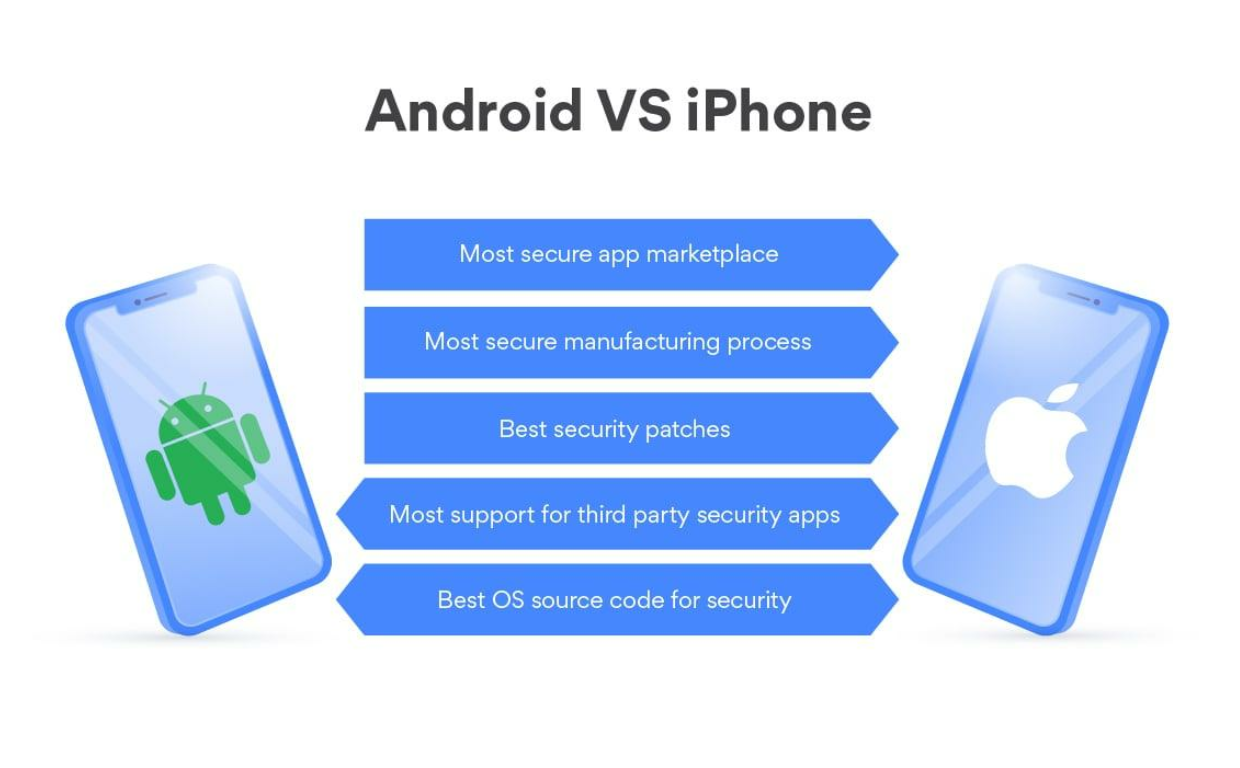
Mobile security is a major concern for both users and developers. While both iOS and Android have evolved significantly over time, iOS continues to stand out in terms of security. In this blog, we’ll explore the six key reasons why iOS apps are generally considered more secure than Android counterparts.
Closed Ecosystem Reduces External Threats
Apple’s iOS ecosystem is tightly controlled. Users can only download apps from the App Store, reducing the chance of malicious software sneaking in through third-party sources. Android, on the other hand, allows sideloading, which increases the risk of compromised apps.
iOS also restricts root access, making it harder for malware to gain control over the device. This structure minimizes vulnerability to outside attacks.
At Mahimedia Solutions, we leverage Apple’s closed ecosystem to develop apps that stay secure across all user devices.
Stringent App Store Review Process
Before an app can be published on the App Store, Apple requires it to pass a detailed manual review. This includes checks for performance, content policy violations, and potential security risks. This vetting process ensures that only trustworthy apps are approved.
In contrast, Android apps submitted to the Google Play Store often undergo automated checks, which may miss complex threats.
We make sure every iOS app we develop passes this review process smoothly without compromising on security or user experience.
Timely Security Updates and Patches
Apple controls both the hardware and software of iPhones, allowing them to roll out updates simultaneously to all users. Over 70% of iOS users are on the latest version within a few months of release.
Android updates are often delayed due to device manufacturer and carrier involvement. This leaves older devices vulnerable to known security flaws.
Timely updates help keep your users protected—something we prioritize in all our iOS app development at Mahimedia Solutions.
Superior App Permission Controls
iOS provides more granular permission controls, allowing users to restrict app access to things like location, microphone, camera, and contacts. These permissions are also easier to review and adjust at any time.
Apps must explicitly ask for each type of data, and Apple’s recent updates make this even stricter with “Allow Once” and “While Using App” options.
Our apps are designed with transparency in mind, making sure users always feel in control of their data.
Sandboxing and Device Encryption
iOS apps operate in a sandboxed environment, which means they cannot interact with other apps or system files. This isolation prevents malware from spreading or accessing unauthorized data.
Additionally, iOS devices encrypt all stored data by default, offering another strong layer of protection if a device is lost or stolen.
Mahimedia Solutions utilizes iOS sandboxing practices to deliver secure apps that safeguard sensitive business and user information.
Privacy-Centric Architecture
Apple is known for prioritizing user privacy. Features like “App Tracking Transparency,” “Sign in with Apple,” and privacy nutrition labels inform users about what data is collected and how it’s used.
Android has started to adopt similar features, but Apple remains ahead in terms of execution and enforcement.
At Mahimedia Solutions, we ensure that privacy is built into every layer of your iOS app—meeting both user expectations and legal compliance standards.
Conclusion
iOS continues to lead the mobile security landscape by combining strict app reviews, fast updates, hardware-level encryption, and privacy-first principles. For developers and businesses alike, this offers a secure foundation for building powerful, trustworthy apps.
If you’re looking to develop an iOS app that prioritizes both security and performance, Mahimedia Solutions is here to help. Our team ensures your project meets the highest industry standards from start to finish.
Ready to build securely? Explore Our Services, Get a Quote, or Contact Us Today.

